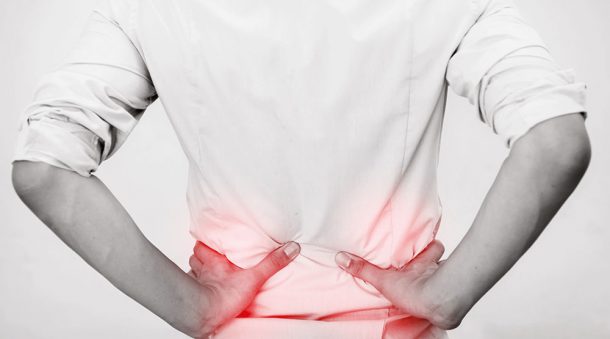
The under-reporting of injury rates is a “significant issue” in the commercial cleaning industry, according to academics from Victoria University of Wellington.
The claims follow the release of a new study conducted by Karen McBride-Henry, associate professor of nursing at Victoria University of Wellington and Dr Tara Officer, post doctorate research fellow at the Health Services Research Centre, Victoria University of Wellington, in conjunction with the Building Service Contractors of New Zealand (BSCNZ),
The findings from the study that examined on prominent injuries in commercial cleaning were released at the BSCNZ conference.
The research is based on ACC NZ 2013/14 – 2018/19 statistics on the cleaning sector, which includes commercial cleaning, chimney cleaners, domestic cleaners, road sweeping, window cleaning and facilities management.
McBride-Henry and Dr Officer also conducted qualitative research, with the findings from three case studies, involving both managers and cleaners, also examined at the conference.
McBride-Henry said the study highlights the need to understand injury rates among commercial cleaners, including those not reported, since injury rates specific to cleaners working in commercial settings is currently unknown.
“Every business in New Zealand has a responsibility to ensure, so far as is reasonably responsible, the health and safety of workers,” McBride-Henry told attendees of the BSCNZ conference.
“We need to understand reporting rates because we currently do not know much at all, but we do have a sense from this research that there is a significant issue of under-reporting.”
Dr Officer said the findings highlighted many risk factors for injuries including environmental; such as the facilities cleaners service; social, such as bullying and workplace culture; workplace procedure; individual traits, such as mental health issues or incorrect use of equipment; and equipment such as chemical use.
According to 2017 ACC NZ data, 10 per cent of all injuries occurred in ‘elementary occupation’ – an umbrella term for all cleaning services.
Lifting, carrying or having strain was the top cause of injury followed by loss of balance, work property, twisting movement and slipping and skidding of foot. Of all cleaner related claims between 2013 and 2018, the average number of claims per person was 1.4.
The top five injury sites included back/spine (with more than 3000 reported injury claims), followed by shoulders (more than 1000 claims), fingers/thumb, hand/wrist and knee.
The top five locations of reported injuries were in Auckland, Canterbury, Wellington, Waikato and Otago. Around 40 per cent of the injuries were reported by women, with 60 per cent reported by male cleaners.
Research themes
The findings from three case studies conducted by McBride Henry and Dr Officer, involving both managers and cleaners, were also examined at the conference.
“The recurring theme from the interviews was that cleaners have a high level of pride in their work,” said McBride Henry.
“However, many cleaners don’t report their injuries because they’re concerned about their jobs or don’t understand their job rights.
“There’s a sense of disconnect between what the cleaners perceive will be the business’ response, and the business’ [actual] response, which is trying to support their cleaners to the best of their ability.
McBride-Henry said the qualitative research showed a culture of normalising minor injuries such as bruising.
“If we could start capturing and reporting minor injuries we might then be able to start understanding that is the precursor to [more serious] injuries occurring, and worth investigating further.”
A lack of business to business communication was also noted during the interview process with the case study participants, noting an injury was not documented by management of a cleaner who remained on site following a contract change.
Recommendations
Among the recommendations following the study is the need for an anonymous reporting framework, which McBride-Henry said would ensure no repercussions for cleaners reporting injuries.
McBride-Henry said there also needs to be an emphasis on stopping the normalisation of minor bruising and injuries.
“Currently [minor injuries] seems to be an accepted part of the work, but it is not ok to get bruised or cut while you’re working.”
According to the researchers the study has also highlighted the need to create “meaningful education” that should be accessible to multiple ethnicities and meet the needs of the learner.
“Every person has their own individual style of learning. Having education that meets the needs of the sector is important and would allow [workers] to know what their reporting rights.”
McBride-Henry and Dr Officer also recommended workplaces undertake regular health and safety meetings, where communication and feedback on prevention strategies can be discussed.
“This research has spiked a conversation about how we can better support the industry,” Dr Officer said, adding the researchers and BSCNZ plan to apply for an ACC injury prevention grant to conduct further study.
INCLEAN attended the BSCNZ conference as a guest of BSCNZ
Comment below to have your say on this story.
If you have a news story or tip-off, get in touch at info@13.238.154.125.
Sign up to INCLEAN NZ’s newsletter.